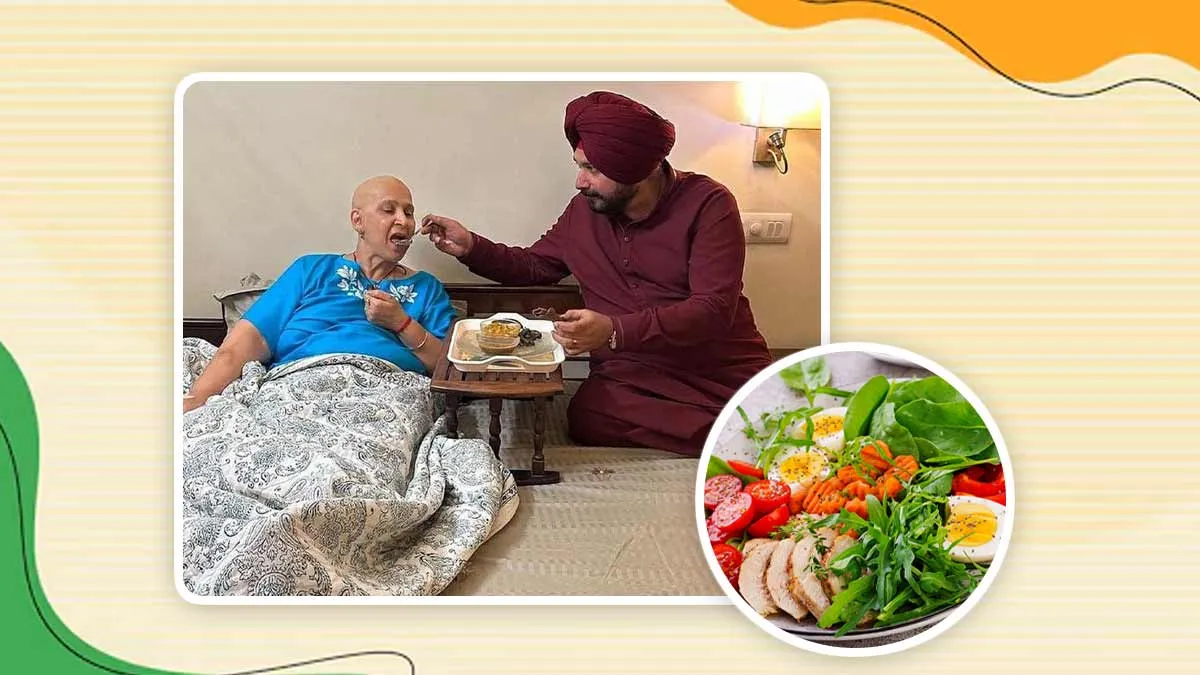In a recent press conference, former cricketer-politician Navjot Singh Sidhu claimed that his wife defeated stage-4 Breast cancer in 40 days with dietary and lifestyle changes. He highlighted that her cancer treatment cost them nothing. Further, he added that her diet includes turmeric, neem water, apple cider vinegar, lemon water, and no carbs and sugar. He emphasised intermittent fasting and lifestyle changes. This claim led to a buzz and debate about dietary changes in cancer treatment. We spoke to Dr Vaishali Zamre, Director, of Breast Cancer Centre, Andromeda Cancer Hospital, Sonipat to understand the reality behind this bold statement.
View this post on Instagram
Can Dietary Changes Cure Cancer?
Dr Vaishali Zamre said, “Diet does not cure cancer on its own, but it plays a significant role in managing cancer symptoms and enhancing the quality of life during and after treatment.”
“Many cancer patients succumb to the disease due to malnutrition caused by the illness itself or the effects of cancer treatments, making appropriate food habits crucial,” she added.
Dr Zamre highlighted that a well-balanced diet provides essential nutrients and energy to combat cancer-related fatigue. Specific foods can help manage digestive issues such as nausea, diarrhoea, or constipation, which are common side effects of treatment.
For example, small, frequent meals can alleviate nausea, while high-fibre foods aid in relieving constipation. Consulting with a nutrition expert ensures that patients receive adequate nutrition despite changes in appetite.

How Dietary Changes Can Cure Cancer
According to Dr Zamre, proper nutrition supports the body in handling treatments like chemotherapy, radiation, or surgery, reducing side effects and aiding recovery.
She suggested that a diet rich in vitamins, minerals, and antioxidants strengthens the immune system, helping the body fight infections. Maintaining a healthy weight is essential to prevent cachexia, a condition of muscle wasting common in advanced cancers, particularly in patients with oral cancers, and oesophageal, stomach, pancreas, and gall bladder cancers.
Additionally, preventing obesity is critical as overweight individuals may experience more complications during treatment, and women who gain excess weight after breast cancer treatment often have inferior outcomes.
Don't Miss:Try These Ayurvedic Dietary Tips For A Healthy Gut; Expert Weighs In

Dr Zamre highlighted that anti-inflammatory foods such as omega-3 fatty acids, turmeric, and green tea can reduce inflammation linked to cancer progression. Balanced meals, especially those rich in omega-3s, complex carbohydrates, and magnesium, can improve mental health by reducing anxiety and depression associated with a cancer diagnosis.
Healthy eating habits also support long-term survivorship by improving overall health and reducing the risk of cancer recurrence.
Dr Vaishali’s recommendation includes:
- Emphasising whole foods like fruits, vegetables, whole grains, lean proteins, and healthy fats Limiting processed foods high in sugar and fat
- Staying hydrated to manage treatment side effects, is particularly important for patients who have received radiotherapy for oral cancers.
- Consulting with nutrition experts to tailor dietary choices based on individual needs, treatment plans, and cultural preferences.
By adopting these dietary practices, cancer patients can better manage their symptoms, support their treatment, and enhance their overall well-being.
Image Courtesy: Freepik/Instagram

Take charge of your wellness journey—download the HerZindagi app for daily updates on fitness, beauty, and a healthy lifestyle!

Comments
All Comments (0)
Join the conversation